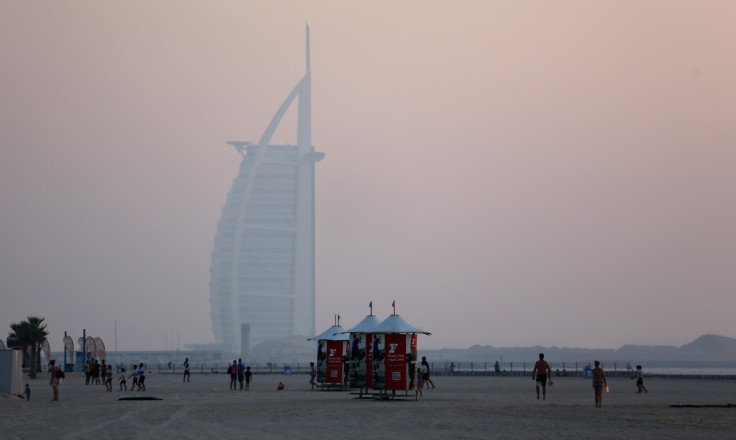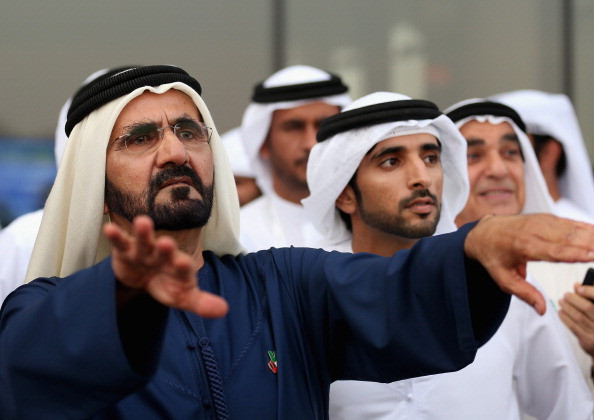Dubai and Abu Dhabi don't need a ministry of happiness – they need justice

"Al Binghal bighal," said one police officer to another: "Bengalis are animals".
It was my second week in Al Sadr Prison in Abu Dhabi when I had to make a visit to the clinic. As per procedure, I had to be searched before being returned to my cell. I stood in a line made mostly of Asian workers; an officer sat on a chair as prisoner after prisoner stepped up towards him.
But this was no airport-style frisking – the prisoners were roughed up and manhandled, their clothes nearly torn off. In my time at al-Sadr Prison in Abu Dhabi, I saw Asians regularly get punched, slapped, and insulted, and they do not dare protest, or they'd get even worse treatment.
A couple weeks earlier, an immigration summons had informed me that I was being permanently expelled from the country I called home for my entire life. There were no charges, no court ruling, no due process, and no chance for appeal.
"Welcome experiments"
Can there be happiness – or tolerance – in a country without justice and rule of law? On a recent visit to the UAE, David Rothkopf, Foreign Policy editor, was so impressed by what he saw that he wrote a piece in which he lauds the UAE's "welcome experiments in a search for producing a successful state in a region that, at least in recent memory, has had a very unfortunate track record in areas of governance".
I can only marvel at the tragic irony that Rothkopf would present as a regional role model a country that punishes non-violent dissidents with jail terms and the stripping of citizenship. A country whose online image is dominated by the likes of Dhahi Khalfan and Waseem Yusuf (more on them in a bit). A country whose foreign policy has greatly contributed to regional misery, but is touted as 'progressive' because it has a ministry of happiness, a ministry of tolerance, and a minister of youth who's actually young.
How sustainable can any experiment in governance be in the absence of justice and basic rule of law?
People cannot be truly happy if they live without freedom, no matter how flashy their golden shackles are.
There are definitely some commendable things being done in the UAE. The digitization of government services has increased efficiency and productivity and stamped out corruption, helping further transform society. I am sure, too, that the UAE's new ministers of happiness and tolerance are good people and I do not wish them any ill.
But their efforts will amount to little unless they can – at the very least – stand up to the country's security establishment, which operates unfettered by any semblance of transparency or due process or rule of law.
Otherwise, the first act of the minster of tolerance should be to launch an investigation into Dhahi Khalfan, the country's notoriously intolerant ex-police chief who has at one point accused Obama of being secretly Shia, and called for expelling all Iranians from the UAE.
Or perhaps Waseem Yusuf, a naturalized UAE citizen and local TV personality who leads an online army of pro-government trolls and who has lengthy anti-Shia tirades on both YouTube and Twitter.
And perhaps the new "minister of happiness" should pay a visit to the three adult children of political prisoner Mohammad Abdulrazzaq al-Siddiq, who earlier this month were extrajudicially and without explanation stripped of citizenship, presumably for protesting the incarceration of their father. Or pay a visit to Al Sadr Prison in Abu Dhabi, where police officers cheer as Asian workers are slapped, spit on, and humiliated.
You don't need to declare a ministry of happiness or tolerance to achieve happiness and tolerance. All you need is a truly independent ministry of justice. Without rule of law and the freedom to criticize those who impede justice, there can be no tolerance or happiness in the UAE or any other country.

The bigotry of low expectations
In his piece, Rothkopf goes on to note that the UAE seems to be thriving in a region wracked by instability and bad governance, and argues that Western criticism of the UAE is unfair given that it's a young country – a younger United States, for example, tolerated slavery, exterminated natives, and did not give the women the right to vote. He seems to dismiss Human Rights Watch UAE researcher Nicholas McGeehan, who described the newly declared ministry of happiness as "Orwellian", as yet another "critic in the West".
That said, I would agree with Rothkopf there – a ministry of happiness doesn't sound Orwellian, but rather Monty Python-esque, or perhaps a bit like something from the early 1980s show "Yes Minister".
But it is exactly this kind of condescending Western commentary that angers an Arab such as myself so much. It is infuriating and depressing that Western journalists can be so easily distracted by shiny objects, such as skyscrapers and six-lane highways; distracted by flashy initiatives such as ministries of tolerance and ministers of youth "who are actually young"; distracted from the fact that these initiatives mean little without basic rule of law.
Many of these Western journalists grew up in liberal democracies where rule of law is sacrosanct and free speech is protected – their condescending commentary makes it appear like Arabs such as myself should not aspire to the same rights as those they're privileged with, as though we are to accept a lower rung on the ladder of human dignity in the early 21<sup>st century. We are human beings too, and like any human being, desire justice.
Happiness without freedom?
People cannot be truly happy if they live without freedom, no matter how flashy their golden shackles are. Behind the UAE's ministry of happiness is a happiness deficit – you can't be truly happy living in a golden cage, even if it's a five-star cage with indoor ski slopes, six lane highways, and even a Louvre and a Guggenheim. And you cannot be truly free if you witness others being persecuted and cannot raise a voice or a finger to protest or to help.
It would rather be helpful if Western commentators kept their wits about them and noted that to successfully tackle tolerance and happiness deficits, a country doesn't need to give each its own ministry – rather, it needs to uphold and protect freedom of speech and expression, fix its flawed and politicized justice system, hold everyone responsible before the law regardless of rank or position or family connection, take a hard look at its treatment of non-citizens and at the rampant abuse and racism in its jails, and have a conversation about the destabilizing effects of its foreign policy.
But given this list, it's probably easier to just appoint a minister of tolerance and another for happiness, and invite a Western journalist to a 51-floor skyscraper overlooking a six-lane highway.
© Copyright IBTimes 2025. All rights reserved.






















